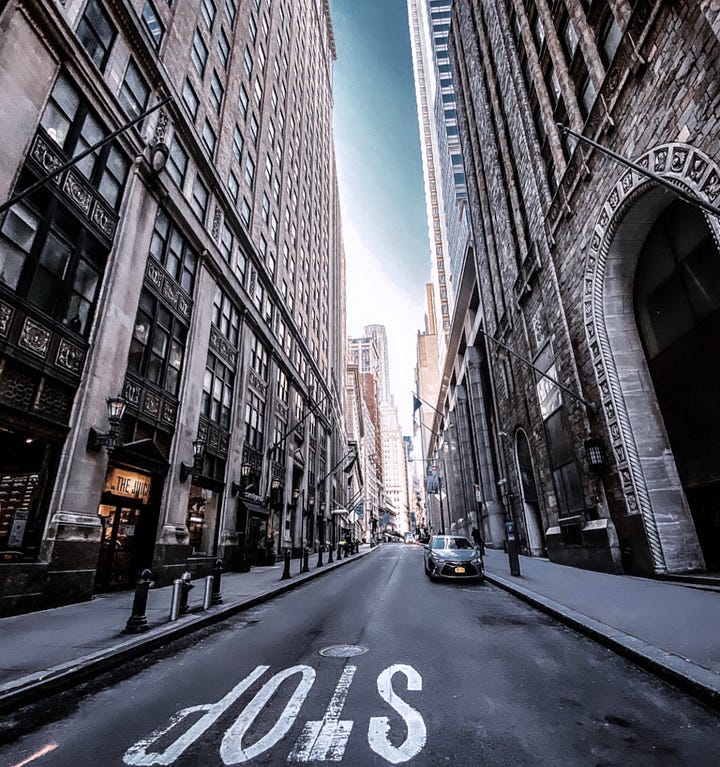
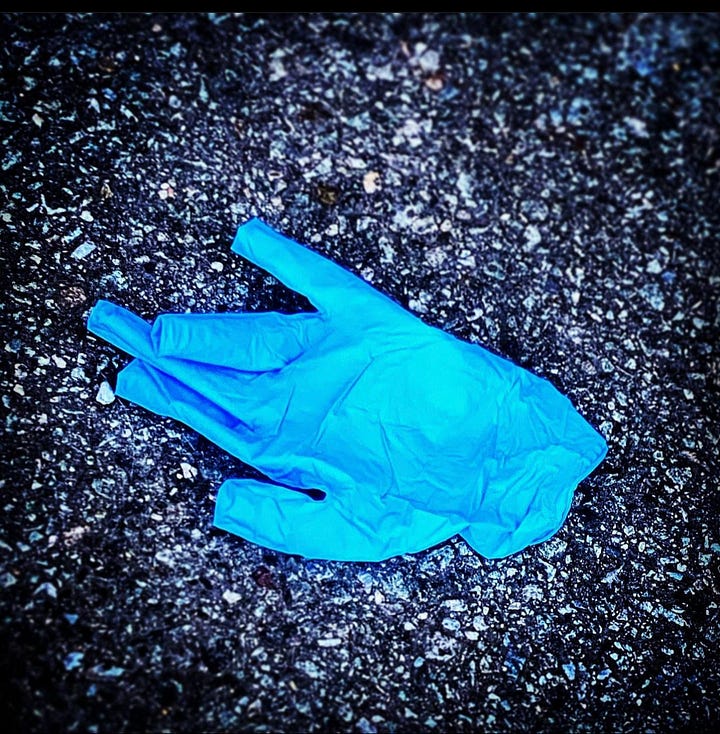
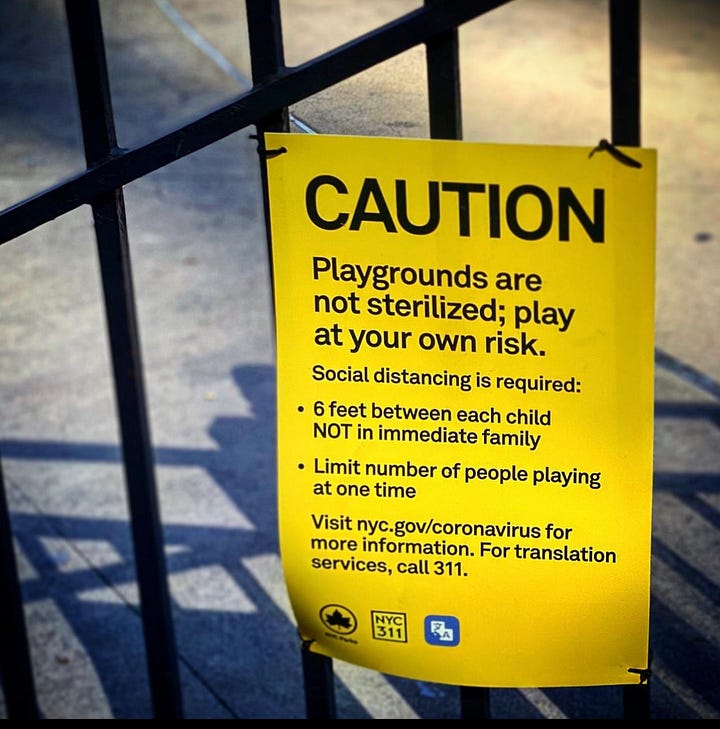
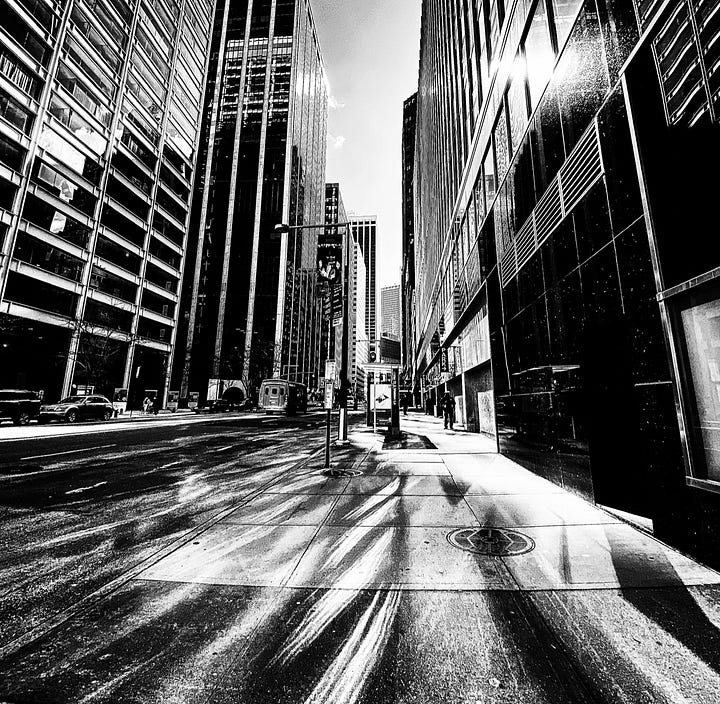
A few weeks ago I sat down to write something about the WHO’s declaration at the beginning of May that COVID-19 is no longer a Public Health Emergency. The extreme suffering and loss of life we’d all been living through were, as I understood it, now relegated to the rearview mirror and we were expected to pump the proverbial gas in order to hasten its blur into the past. By we I mean the human race. I mean this extremely unique and deeply terrible thing happened to ALL OF US and it happened EVERYWHERE. Excuse me for yelling but that is what my brain tends to do when it feels particularly stressed by other people’s (or other entities’) unreasonable expectations. I wrote a couple of paragraphs about my belief that ignoring a years-long mass trauma isn’t psychologically healthy for a person or for a culture and then I put it aside. Frankly, I had a bunch of other shit I was dealing with including a broken air conditioning system which persisted for weeks upon weeks due to my demon twin landlords (heretofore known as MDTL) refusing to get it fixed despite this being quite literally the hottest month recorded in HUMAN HISTORY.
Within 48 hours of writing that little bit of an early draft, the vice grip around my head arrived. I’d spent the month prior having to threaten MDTL with legal action and also crying on the phone to various men who are in charge of important things in my building and to various additional men in the HVAC business throughout the five boroughs, eventually falling to my knees and begging the Freon Gods for mercy which finally, at the end of July, I was granted. (Did you know that NYC landlords are not legally required to provide air conditioning, even when it’s 97 degrees outside and therefore a hundred degrees inside, and even though a person couldn’t open their windows during this particular record-destroying heat wave to let hastily purchased from Target fans create however pathetic a slight breeze because the air was literally TOO TOXIC FROM THE CANADIAN WILDFIRE SMOKE TO BREATHE?)
Anyway, I figured heat exhaustion was responsible for my intense headache and the swoony feeling I experienced upon any attempt at upright mobility because even though the a/c was finally fixed I’d recently returned from a pilgrimage through the swampy streets to Whole Foods. Dehydration is a thing, right? So, I set about drinking vast quantities of water. The vice only tightened around my head. I lay awake, variously popping Tylenol and eliminating the gallon of water I’d ingested for most of the night. Early the next morning I employed some miracle technology hidden inside a stick that you place under your tongue and which, in seconds, reports back the internal temperature of your human body exclusively to the screen of your telephone, otherwise known as a smart thermometer.
101.7
Chills too. Also, the distinct feeling that my entire brain was simmering in a pan slicked with hot oil. I took one of my last remaining government-provided rapid tests, and for the first time in approximately 175 weeks, the second line turned almost immediately a shade of red that the walls of Bedminster have likely found themselves splattered with throughout the past week. Only days earlier, I had stopped religiously leaving the house with a KN95 mask hung on a delicate fake pearl chain I specially ordered from Etsy because a pandemic might mean never putting on an underwire bra again, but it shouldn’t have to require foregoing all elegance. My mask-on-a-chain lifestyle ended because the mother-effing World Health Organization said Coronavirus was no longer an emergency in May, and now it was the end of July, the middle of the hottest summer in all of recorded time, and after NO AIR CONDITIONING for close to a month, guess what?
It was too fucking hot to wear a mask inside stores or elevators anymore, that’s what.
The Abbot Lollypop mocked my smug stupidity with its double-lined grin. I took a picture so I could post it on social media by way of announcing the end of my immune system’s impressive 3.5-year run, because a thing to know about me is that I am, in certain circumstances, a very basic bitch (see: shopping at Whole Foods). And then I thought: Well, now you can write what you know, Mademoiselle Dumb-Dumb. But of course, I couldn’t write anything. I couldn’t remain vertical for more than a few minutes at a time. I couldn’t think, and I couldn’t even trawl any of my various screens for drops of dopamine, which is how I would normally cope with discomfort because of the brain mentioned above simmering in a pan of hot oil on the stove of my skull. I really couldn’t do anything except sleep for days and days. And then some more days after that.
Right before I got sick, though, I wrote this:
I feel like a virus so contagious and deadly it completely shut down the entire world, grinding the largest cities on Earth to a halt, a once-in-a-century plague in which millions of people died uniquely awful deaths in every corner of the globe, their loved ones kept away from them as they left, is a trauma worth trying to begin dealing with. Collectively, I mean. Doesn’t seem to be the plan, though. Because, at least in America, and I can only ever speak for America, we don’t know how to grieve. We know how to work and party and shoot and consume and distract and ignore and lionize and pretend. We know how to occasionally take moments of prescribed silence or stand in the dark holding candles in small paper cups after the most recent slaughter of innocents. But we don’t know how to collectively mourn a thing for which we don’t know who to blame. Distraction from past pain and our present complicity in future suffering is the fuel this nation runs on.
“An estimated two million New Yorkers — nearly one in four — lost at least one person close to them to Covid within the first 16 months of the virus’s arrival, according to the data, which was collected in mid-2021 by federal census workers on behalf of the city. Nearly 900,000 New Yorkers lost at least three people they said they were close to, an open-ended category that included relatives and friends…”
— Sharon Otterman, The New York Times, 5/5/2023
No one wants to think about what happened here, to us, of course, we don’t. But there is a cost to what we ignore. That adage about the body keeping the score? There is a collective body, too. Just as unmetabolized personal trauma will eventually leak out of an individual onto everyone around them, a city’s unrecognized trauma, a nation’s, will eventually flow into the veins of its streets. A country founded on genocide and built on the backs of human beings our ancestors enslaved, a government that refuses to really reckon with responsibility for harm so grievous and deep it has become entangled in its citizens’ DNA, a country like this will never tend to the wounds of a biological catastrophe like COVID.
People cannot wait to move on. And capitalism demands it. There is no time for mourning. Essential workers must continue to do their essential work, always for less money than will permit them to ever feel valued or safe. Masters must continue to be served because rent must be paid and families must be fed.
Now it’s the middle of August, which means it’s almost early September, which means we will soon be drenched in a storm of never forgets. As though any of us who were here and conscious that day ever could. But the very people who issue these annual memory directives want us to skip past the terror that invisibly snaked its way into our metropolis and killed at least forty thousand more human beings than the men who, 22 Septembers ago, split the seams of this same city into ashes and dust. That day, there were villains we had pictures of, whom we could punish by name. But this time? We still don’t know how it happened, not for sure. It’s easier to forget. Everything from those baffling first instincts to hoard toilet paper to the fact that within three weeks, we became what no place should ever have to be:
The apex of an entire planet’s terror, suffering, and loss.
Ground Zero.
Again.
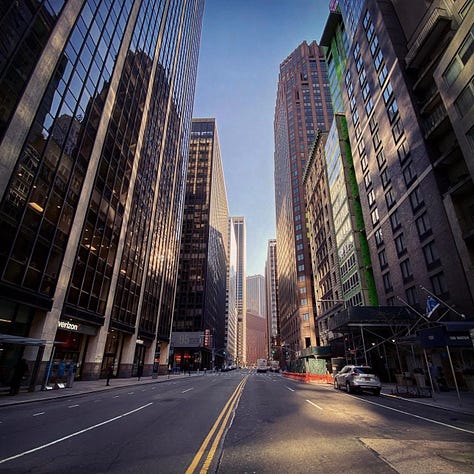
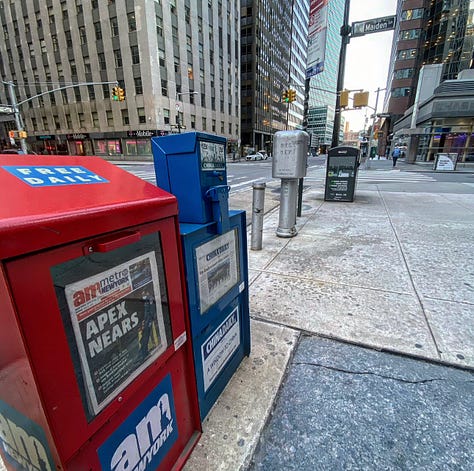
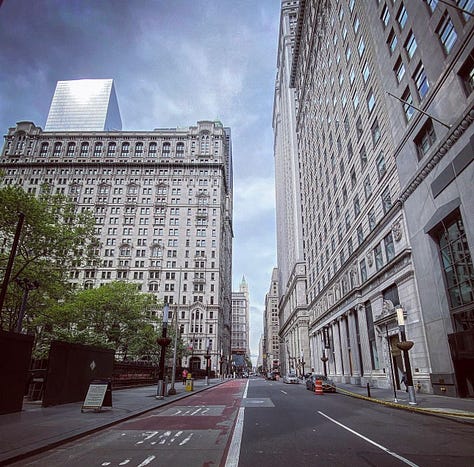
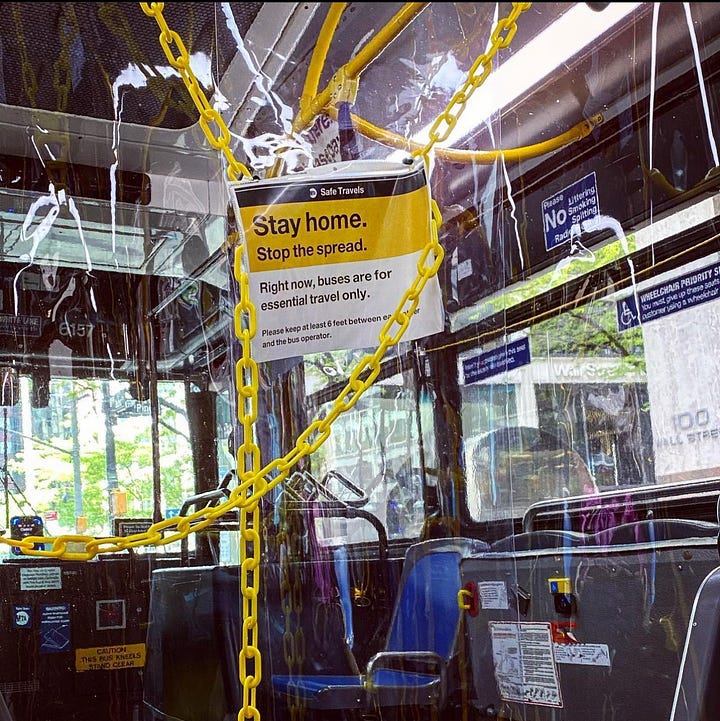
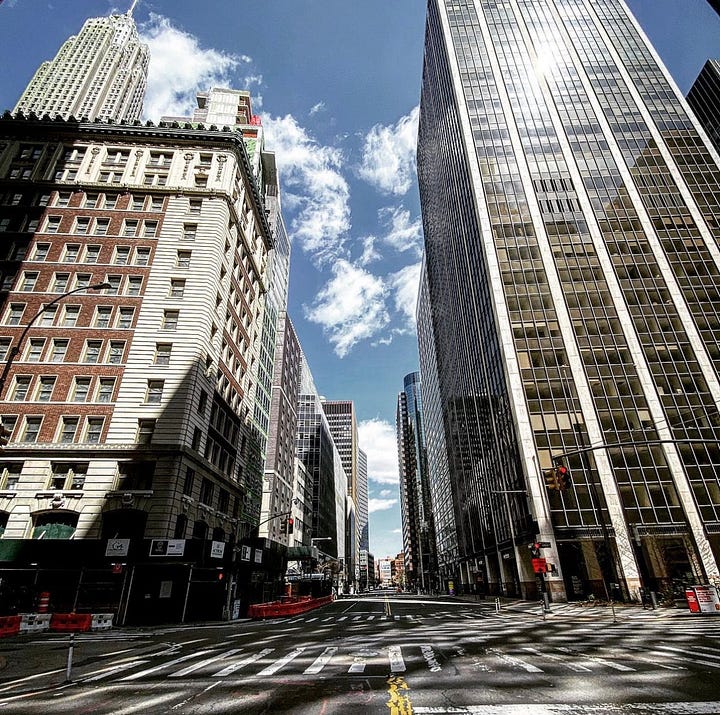
They want us to forget the silence of all those days and nights in March and April into mid-May, how the quiet and the emptiness were only interrupted by the echo of trailing sirens and then, each evening, by our voices shouting out windows and from rooftops into the sinister air. Pots banging, hands smacking together, a messy song sent into the urban canyons, sounds floating on faith, bouncing between buildings, through empty streets, and over both rivers.
Remember how clear the air was then?
Remember how we learned that a holy place is wherever you make it? Remember our gratitude for all the first responders and hospital staff who spent their days and nights fighting a relentless tide of suffering? Remember how we were trapped alone in our homes, and amidst so much fear and frustration, loneliness and grief, we sent primitive signals out into the Universe, all of our disparate noise a collective summoning, a coalescence of hope?
We shouldn’t forget. We shouldn’t forget that, despite being helmed at the time by a now-quadruple-indicted criminal madman, our government found a way to cut checks to every single citizen, and they did it quickly. The same government prevented people from being evicted. You don’t have to worry about student loan repayments, the government said. Never mind that right now, just stay home. It was an emergency and no one’s fault (at least, we were told, no Americans’), so it turned out there was enough money to make things a bit easier for anyone who might need it.
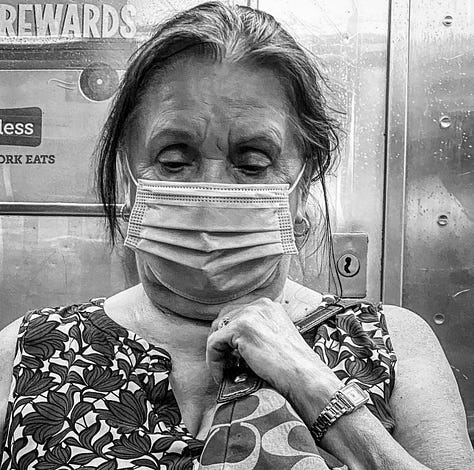
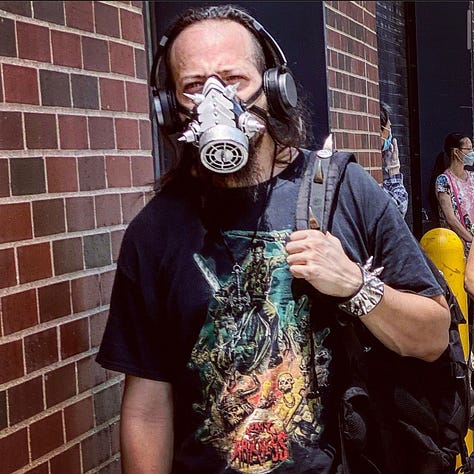
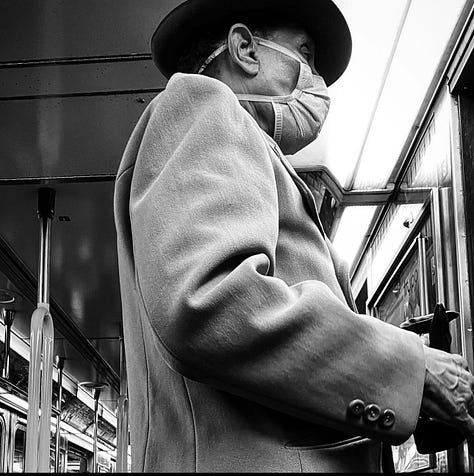
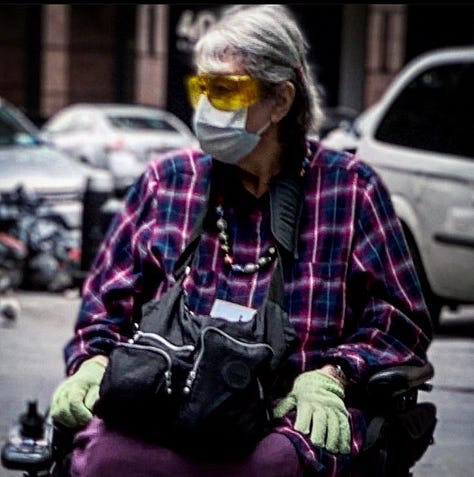
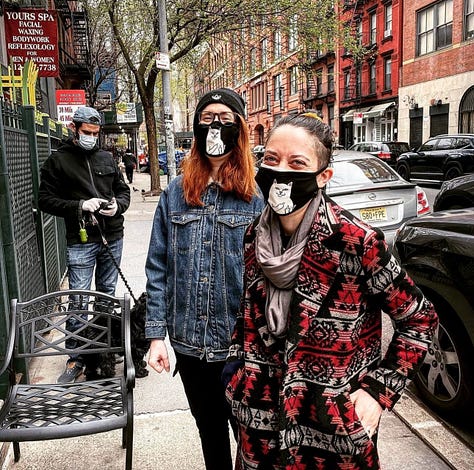
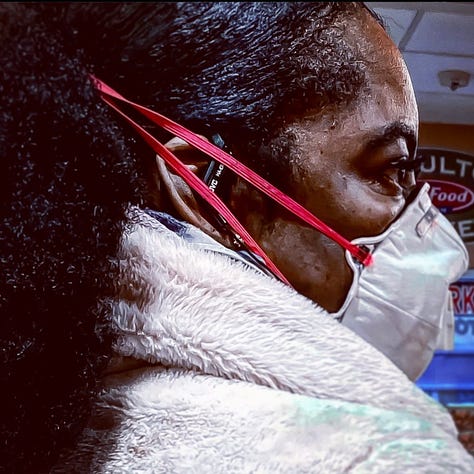
You know what I think? I think they want us to forget about all those days we spent watching convention centers turn into hospitals and MASH units being built in our parks, all those nights we lay awake wondering if a tickle in our throats would become an ambulance ride to a ventilator to a nurse holding an iPad up to our eyes so a loved one could say their final goodbyes because they don’t want us pondering too much upon the one reason our government was willing to do all those good things it did.
So the economy wouldn’t implode.
The language officials used to talk about the need for immediate assistance was that people were thrust into this crisis ‘through no fault of their own’. What does that mean exactly? If a person is laid off under ‘normal’ circumstances or if they have overwhelming medical debt because we insist on making it unaffordable to become seriously ill or badly injured in this country, or if they were born into a system so racist the limitations it imposes are often impossible to outrun, whose fault is that precisely? Who determines the parameters of our own? Why is it only a “natural” disaster (or a war, of course) for which our government is willing to avail its colossal resources?
If Covid was a faultless trauma, what about the traumas we prescribe? What about the deadly emergencies we create every day because half of Congress is in thrall to a de facto terrorist organization whose only goal is to profit off the more than 40,000 people killed each year by way of their pathological gun fetish? And what about the ultimate natural disaster we are inducing every minute of each day we don’t take radical action to prevent our seas from reaching temperatures that the Earth’s biological inhabitants will not survive?
I’m just saying.
It’s three weeks after my body first went viral, and I still can’t really taste or smell anything. I’m still very tired. But the fog in my brain has lifted enough to string these sentences together, and I’m back in my digital kayak fishing for dopamine online like the good lord intended. Vaccinated to the gills, with the bivalent booster late last September, I didn’t ever have to worry about becoming dangerously ill. I spend a lot of time thinking about the millions of people around the world, especially the ones in my native city, who weren’t so lucky. The ones who were willing to go to work in the beginning. Or the ones who didn’t have a choice not to. The ones who were older, maybe, or were already sick. The ones who believed their President. Straight into the furthest-reaching cameras on Earth, he stared, and into its most powerful microphones,
One day, like a miracle, it will disappear, were the words he said.
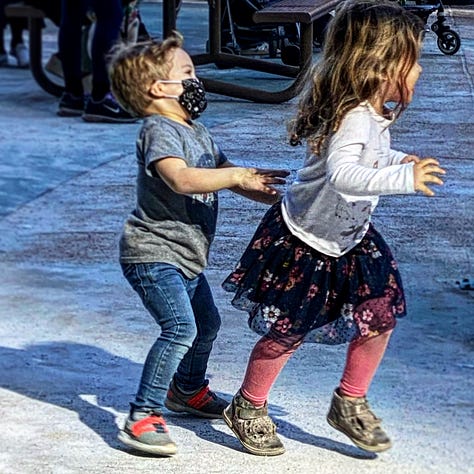
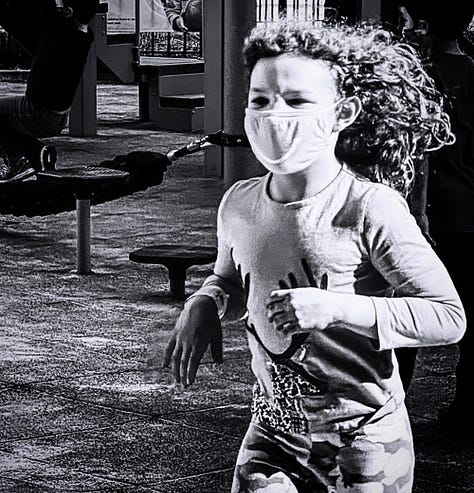
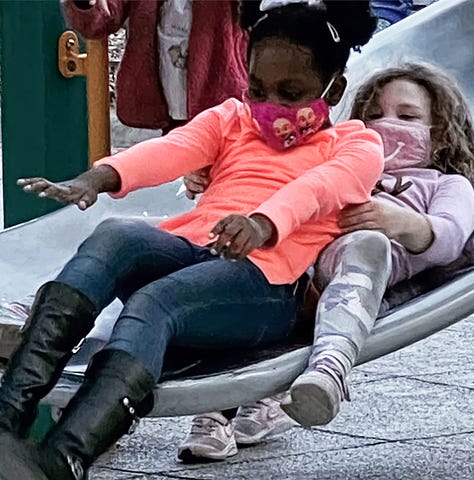
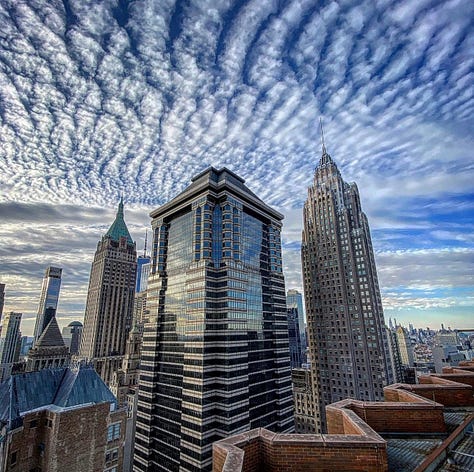
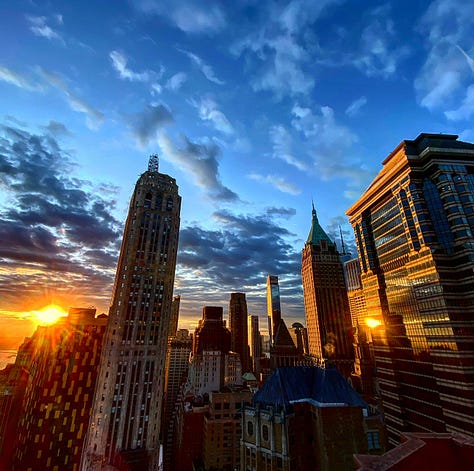
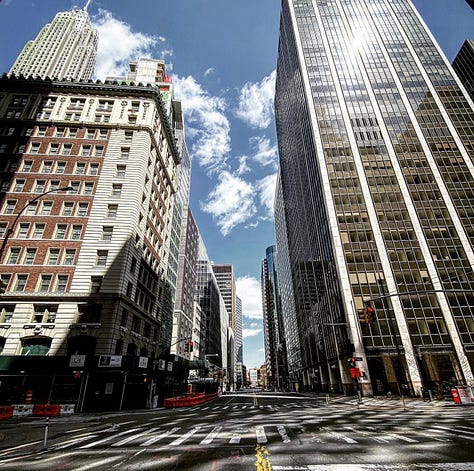
Lower Manhattan, my neighborhood. A place where fortunes are traded, kids shriek joyfully in playgrounds, and a new mall was built above ghosts. If anyone ever asks about what it was like, I’ll tell them that for a couple of weeks, the air was clear enough to see Connecticut. And I’ll tell them how at the end of the most dangerous days, when the light lingered long enough to keep us company past seven, everyone knew what mattered.
We survived by vectors of each other’s grace. Our loved ones’ tenderness. Our neighbors’ kindness. Millions of strangers and all of their hope.
Remember them.
Remember us.
Remember this.

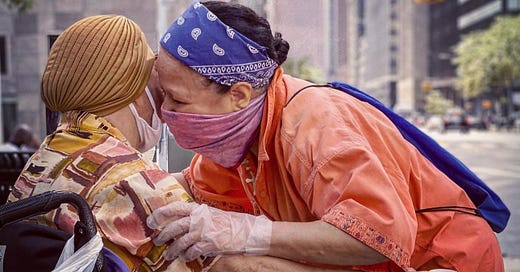

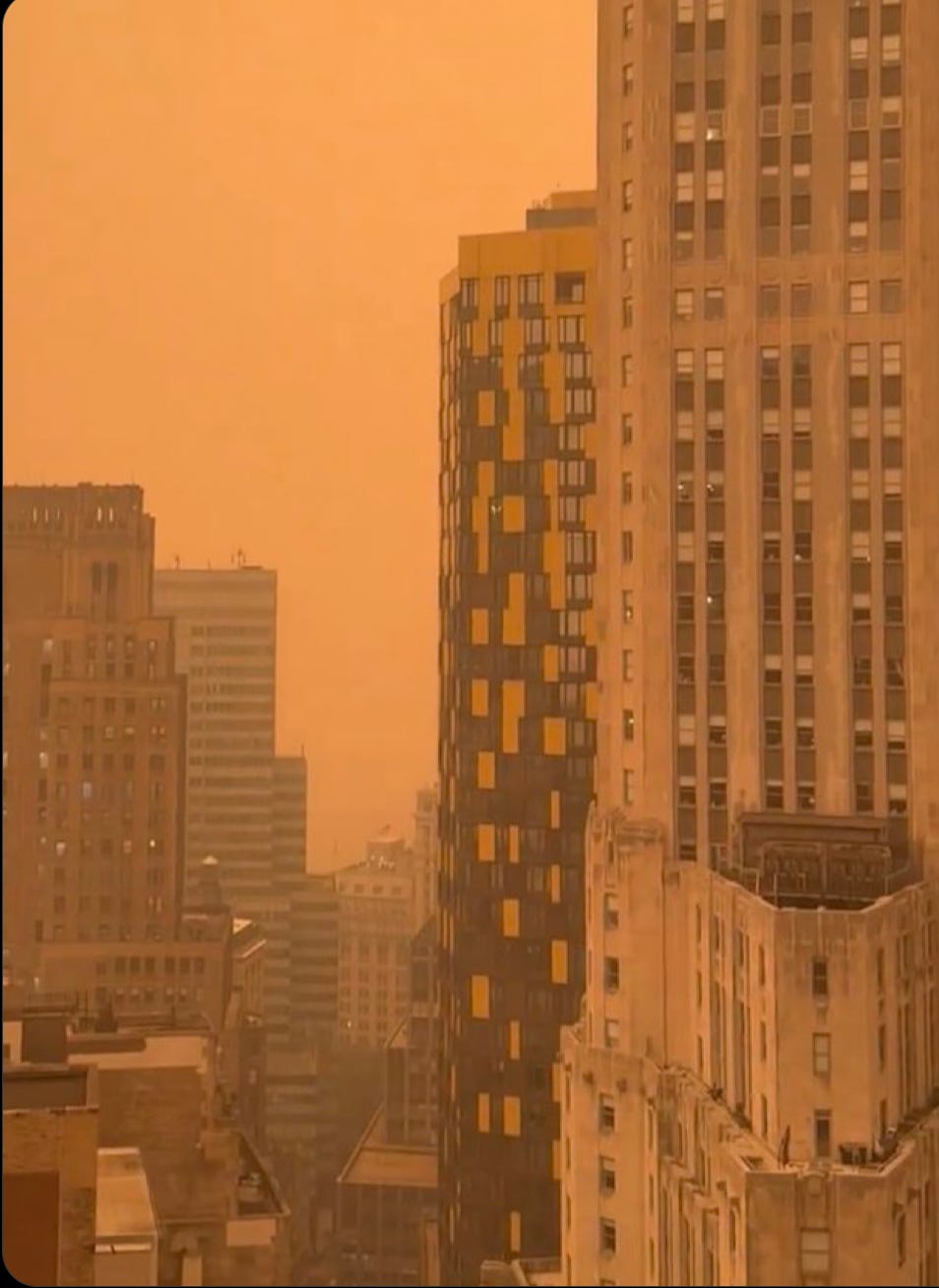
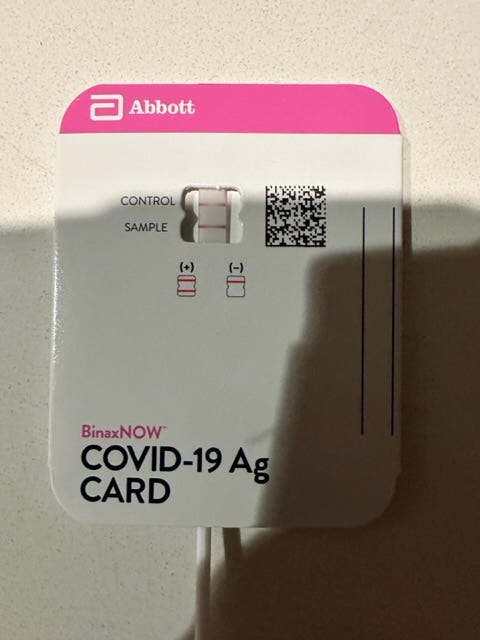
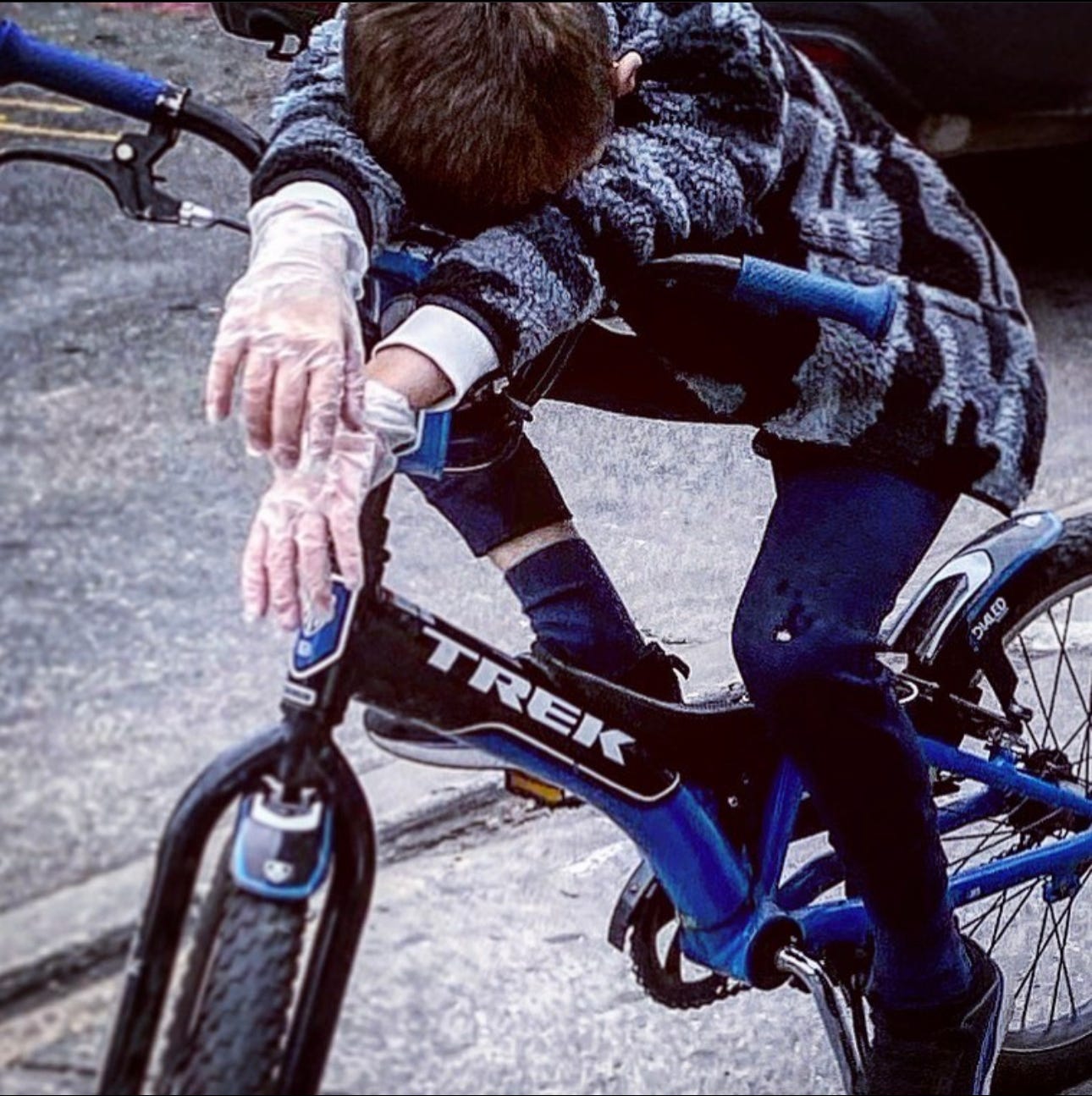
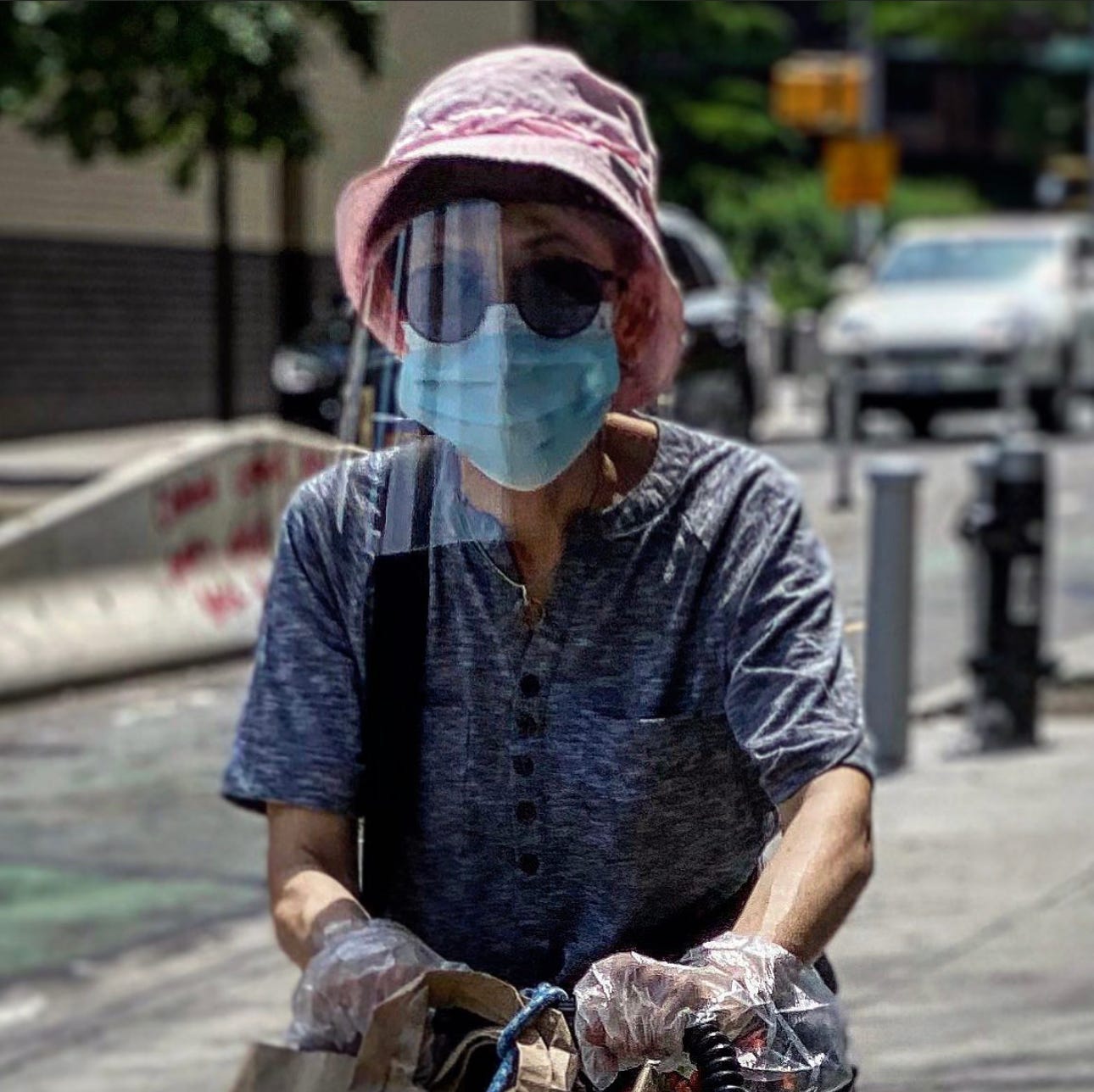
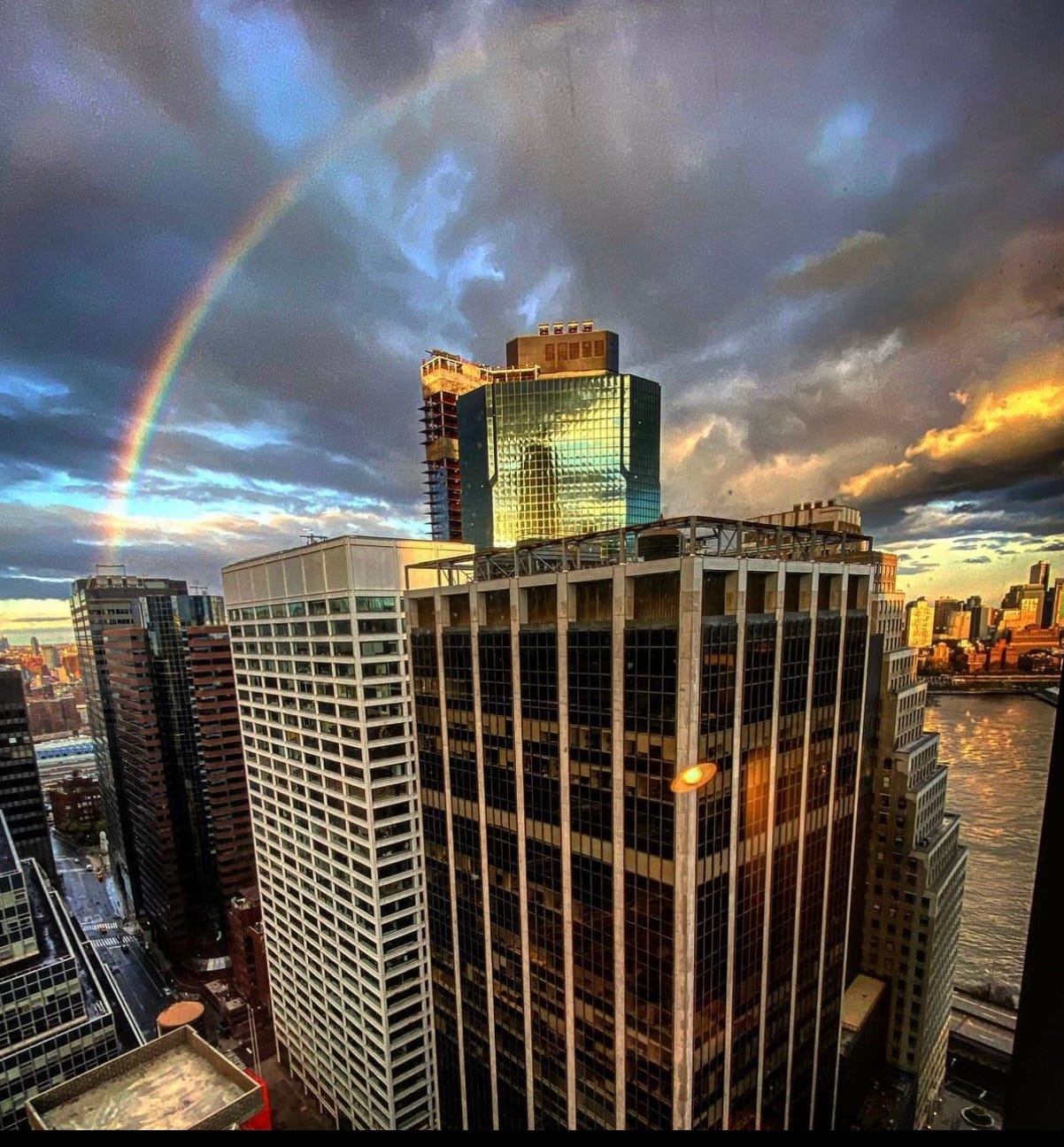

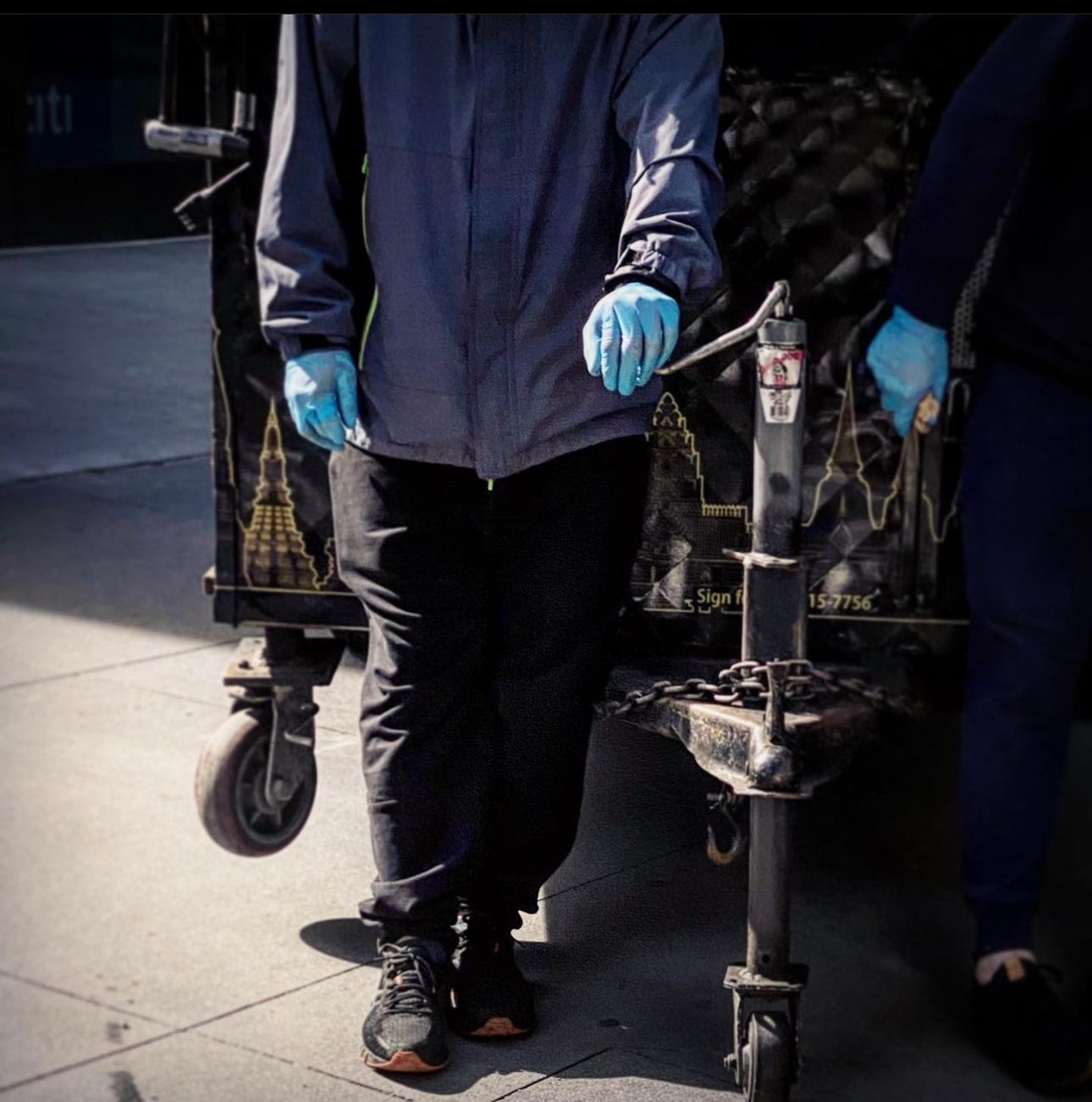
Thank you for this graceful post of what it was like for us New Yorkers back then. It brought back many memories. And you're right, I'd suppressed many of the memories.
For me personally, the onset of Covid in NYC will always be intertwined with this: On March 20th, my mother died suddenly, not of Covid, but of other issues. I was not allowed to see her in her brief stay at the hospital to say goodbye. The next day, March 21st, my daughter was scheduled to be married in a wedding that had been downsized to ten people in our living room. We went ahead with the wedding as we knew that was what my mother would have wanted. It was a beautiful ceremony and I was able somehow to use the emotion of my grief to make my joy more intense.
Thank you for making me remember.
Your beautiful writing takes me back to those dreadful days/weeks/months/years. Heartbreaking for millions. And terrifying for many. Am happy you are feeling a bit better.